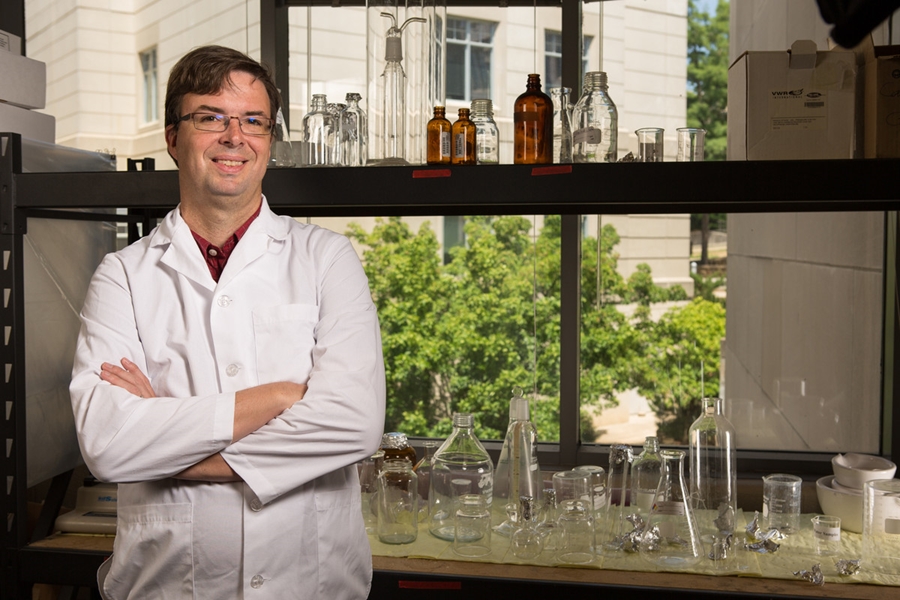FAYETTEVILLE, Ark. – Researchers at the University of Arkansas and the University of Arkansas for Medical Sciences have developed a long-lasting spray that disinfects surfaces for extended periods, even in heavy use, and is less likely to transmit infectious diseases.
The spray has been shown to be an effective antibacterial agent and is being explored for antiviral properties. The spray also lasts longer than standard cleaning solutions — researchers have demonstrated it can withstand up to 50 touches on a metal surface before it needs to be reapplied.
The spray was developed by a team that includes professor Jamie Hestekin and doctoral student John Moore, both in chemical engineering at the U of A, as well as professor Peter Crooks and postdoctoral fellow Soma Shekar Dachavaram, both from UAMS. The original development of this work came from an NSF Epscor Track 1 project led by Min Zou, professor of mechanical engineering, and Steve Stanley from the Arkansas Economic Development Commission.
Hestekin said the product is unique because the application happens in one spray step and uses a process known as “click chemistry” to combine nano-sized cellulose and antiseptic agents. Those agents create compounds with antibacterial and antiviral properties that attach on to the surface and develop into films through an auto-assembly process.
The technology is patent-pending, and researchers were recently awarded a $194,000 grant from the National Science Foundation to support the work. In that project, researchers work with Christa Hestekin, an associate professor who holds the Ansel and Virginia Condray Endowed Professorship in Chemical Engineering, on virus identification and destruction. The project has also been supported by the University of Arkansas Chancellor’s Commercialization Fund.
Researchers plan to use green dye in the spray material, so a person would know, for example, that it was safe to touch a doorknob as long as it appeared green. When the knob returns to its original color, it would be an indication to reapply.
The spray could also be sprayed over the top of packages in distribution centers, without damaging them, to better protect employees and consumers, researchers said.
The research represents an important step in the COVID-19 recovery process, Hestekin said.
“When the current lockdowns end, there will be a need for the public to feel safe going out again,” he said. “Since it is known that COVID-19 can survive a significant amount of time on surfaces, a surface coating that works on doorknobs, countertops, etc., is needed to make the public feel safe touching these surfaces without risk of being infected.”
Researchers have a preliminary prototype under testing and have started a business called Nanocellutions, where Moore is the CEO. The spray can be produced as a liquid, which can be aerosolized by the client, or it can come prepacked as an aerosol can.
“The goal is to provide a quick-drying surface coating material that can be easily handled and applied by both large companies and consumers,” Moore said.
Hestekin said it’s important to remember proper hygiene is the first step in preventing the spread of COVID-19.
“Although there is no substitute for proper hand washing, this product could provide a secondary barrier to help slow the spread with a visible marking when the product is effective,” he said.
Hestekin is the Ralph E. Martin Professor of Chemical Engineering at the University of Arkansas, and Peter Crooks holds the Simmons Chair in Cancer Research at UAMS.
Topics
Contacts
Nick DeMoss, director of communications
College of Engineering
479-575-5697,
